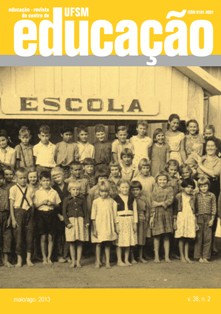Indiscipline in schools: working with class meetings in developing morally autonomous children
DOI:
https://doi.org/10.5902/198464445062Keywords:
Indiscipline, Class meetings, Basic Education.Abstract
The problems with discipline and violence in their several manifestations in classrooms in both public and private schools have been a major challenge for educators. Regarding the classroom environment, the purpose of this study was to propose class meetings as a coping mechanism, aiming to build morally autonomous subjects. From the description of situations experienced within the school context by children between seven and eight years old who study in a public elementary school, we tried to emphasize its importance through the analysis of thoughts and the moral development in this group, involving real dilemmas emerging from the familiarity between teacher-student and student-student. The importance of using resources such as class meetings is evidenced in this study which may result in the building of moral autonomyDownloads
Published
How to Cite
Issue
Section
License
Declaration of originality
We declare that all articles present in the journal Educação (UFSM) are originals and were not submitted for publishing on any other publication, as a whole or a fraction. We also declare that, after being published by Educação (UFSM), a paper will not be submitted to another journal within two years. After this time, our journal transfers the publishing rights to the authors, with a permit granted by the Editorial Council.
We also acknowledge that the originals’ submission to Educação (UFSM) implies on a transference of copyright for physical and digital publishing to the journal. In case of noncompliance, the violator will receive sanctions and penalties predicted by the Brazilian Copyright Protection Law (n. 9610, dated 19/02/98).
Attribution 4.0 International (CC BY 4.0)
This license lets others remix, transform, and build upon the material for any purpose, even commercially, and copy and redistribute the material in any medium or format.

This work is licensed under a Creative Commons Attribution 4.0 International (CC BY 4.0)






